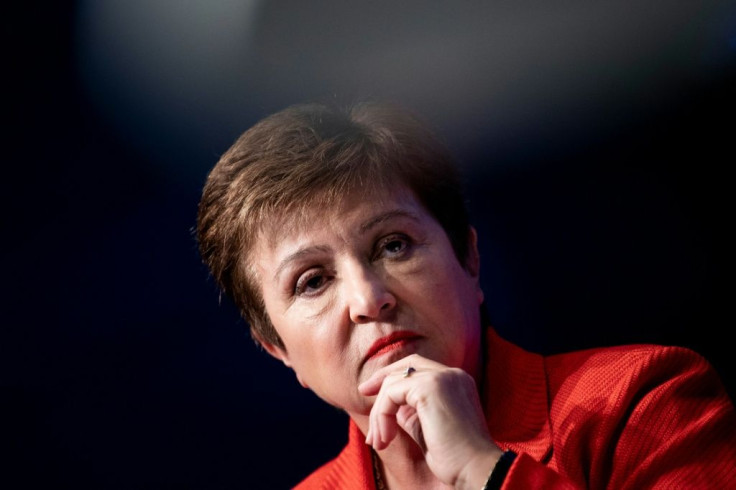Coronavirus Economic Impact: IMF Says Global Recession Is Underway, Worse Than 2009

KEY POINTS
- $83 million in capital already has disappeared from emerging markets
- Georgieva predicted the global economy will recover in 2021
- She praised the $2.2 trillion economic relief bill developed by the U.S. Senate
International Monetary Fund Chairman Kristalina Georgieva said Friday a global recession is underway and predicted it will be worse than the 2009 financial crisis, especially in developing nations.
“We have reassessed the prospect for growth for 2020 and 2021. It is now clear that we have entered a recession – as bad as or worse than in 2009,” the Bulgarian economist said in prepared remarks for an online conference call of the International Monetary and Financial Committee. “We do project recovery in 2021 – in fact there may be a sizeable rebound, but only if we succeed with containing the virus – everywhere - and prevent liquidity problems from becoming a solvency issue.”
She said a key concern is the risk of bankruptcies and layoffs will undermine any recovery and the impact would be felt especially sharply in emerging markets. She praised the $2.2 trillion coronavirus relief package developed by the U.S. Senate, calling it “absolutely necessary to cushion the world’s largest economy against an abrupt drop in economic activities.”
She told an online press conference the “sudden stop” to the world economy robbed emerging markets of an estimated $83 million capital in and government resources are insufficient to make up the deficit.
“We are in an unprecedented situation where a global health pandemic has turned into an economic and financial crisis,” she said. “With a sudden stop in economic activity, global output will contract in 2020. Member countries have already taken extraordinary actions to save lives and safeguard economic activity. But more is needed.”
She said more than 80 countries are seeking emergency relief. The need is estimated at $2.5 trillion.
“We are being asked by our members to do more, do it better, and do it faster than ever before – and to do it in collaboration with the World Bank and our other partners,” she said.
"We do know that their own reserves and domestic resources will not be sufficient," Georgieva said.
© Copyright IBTimes 2025. All rights reserved.






















